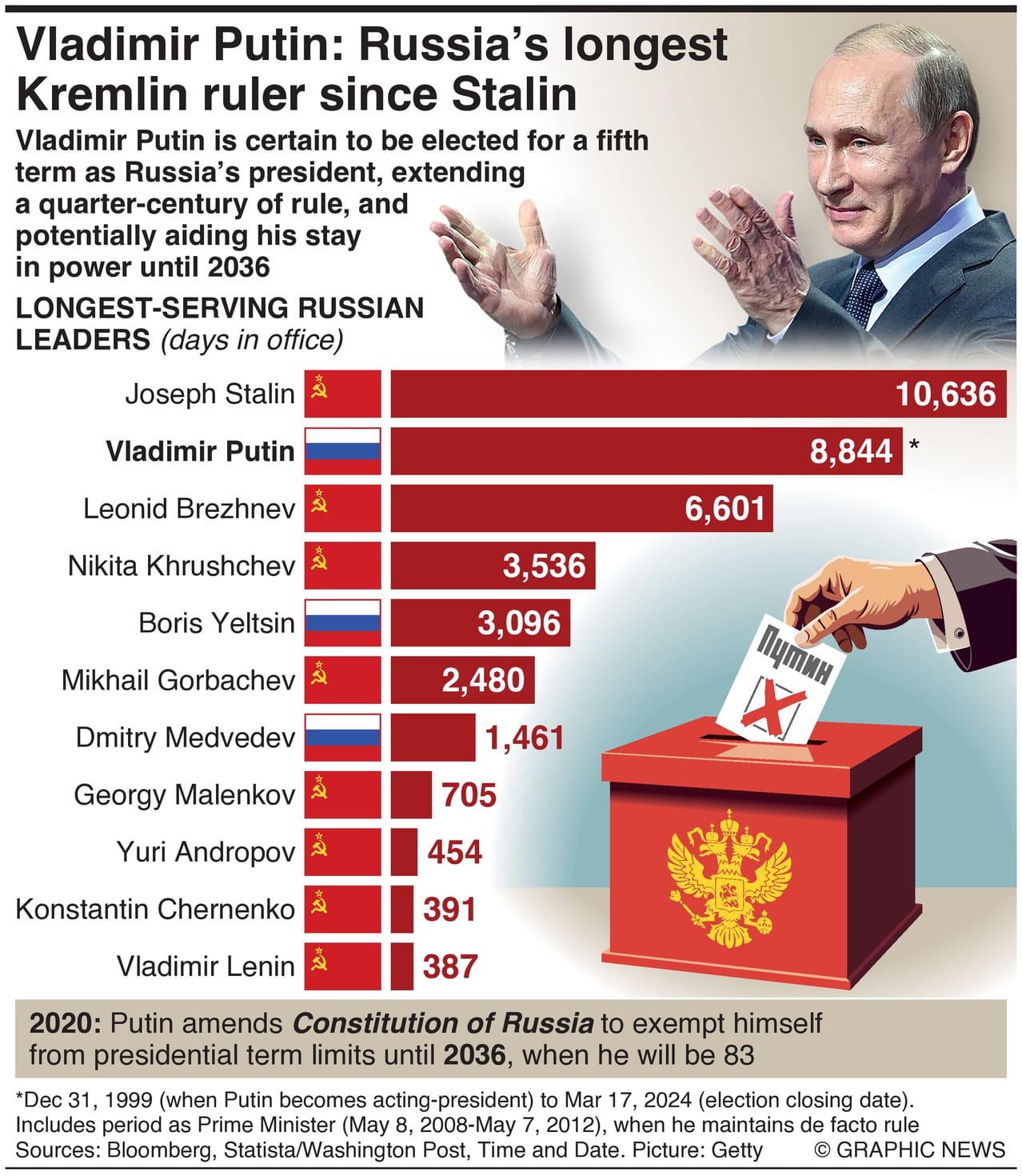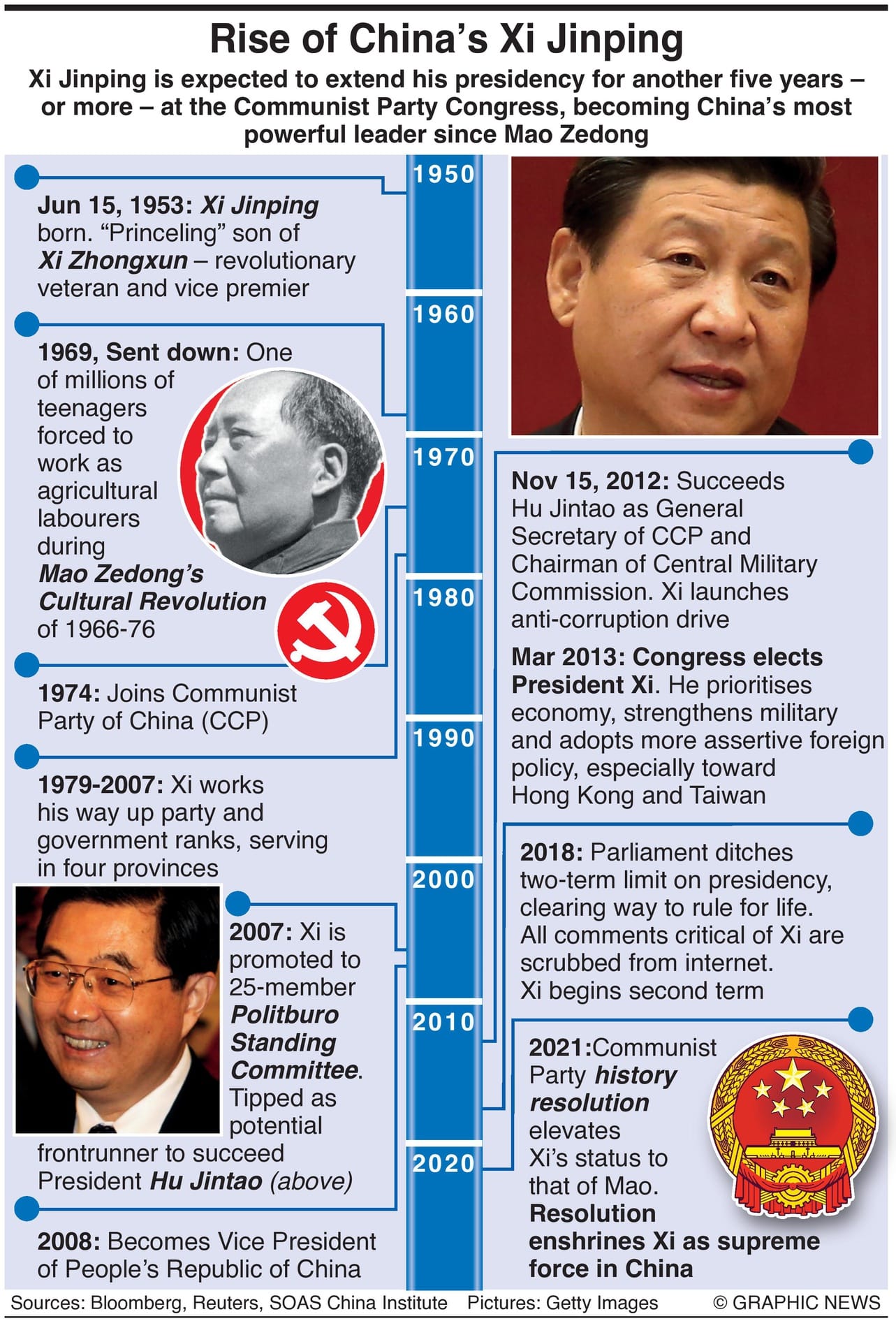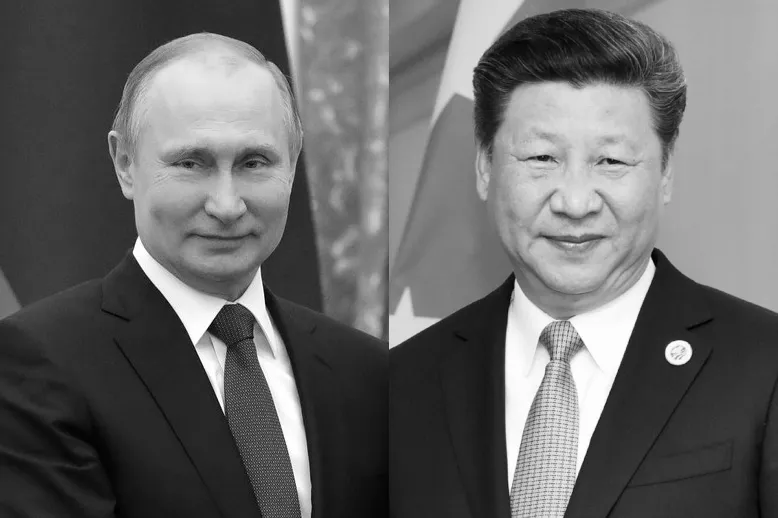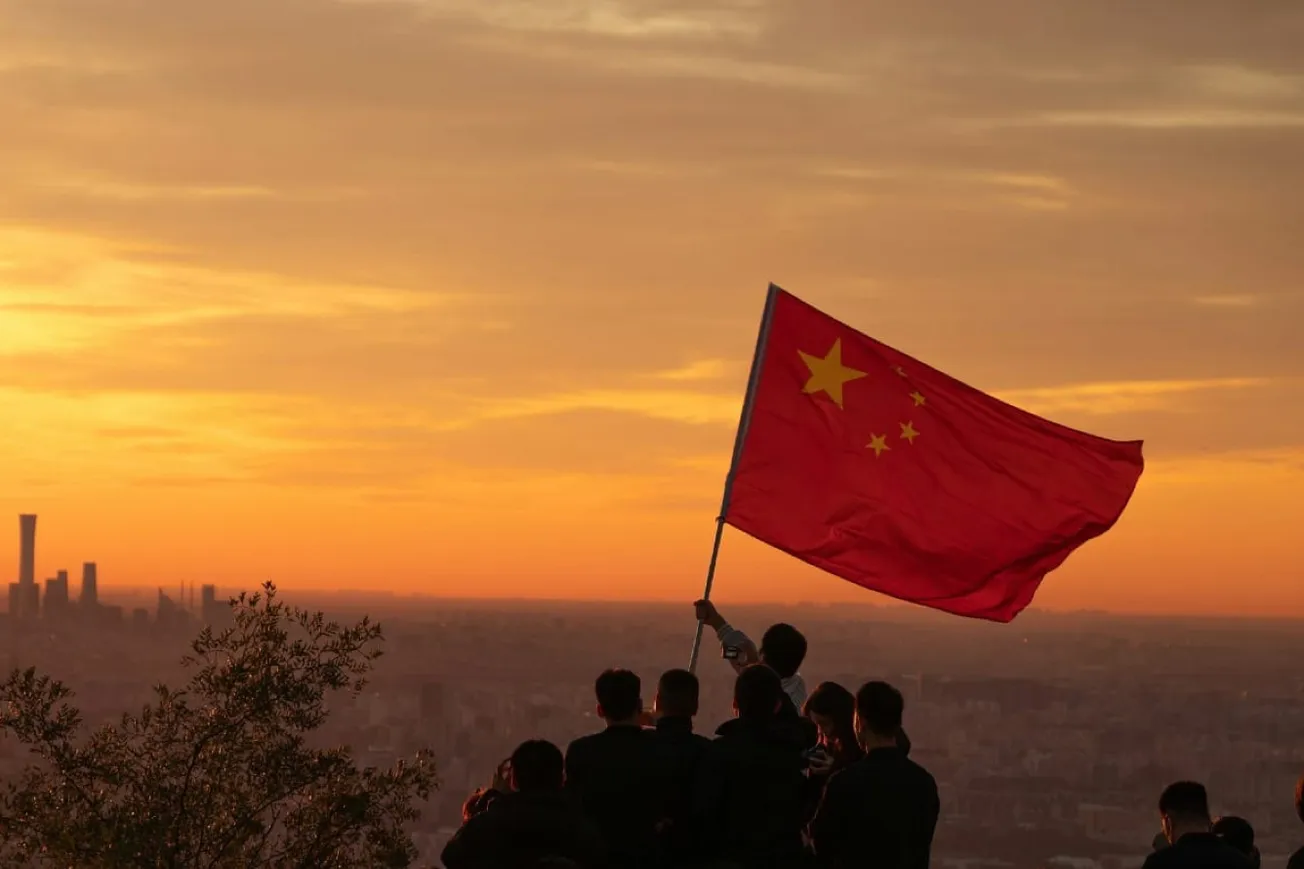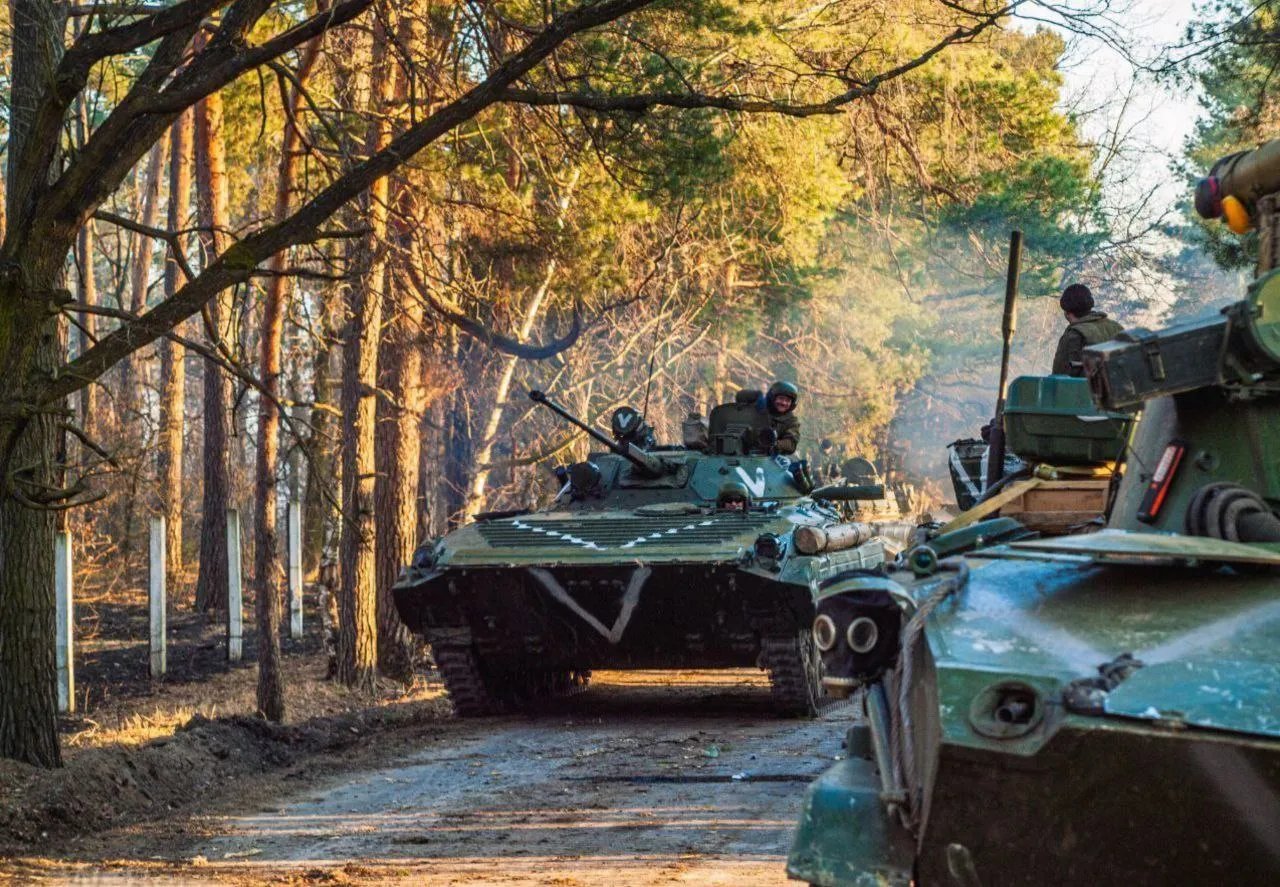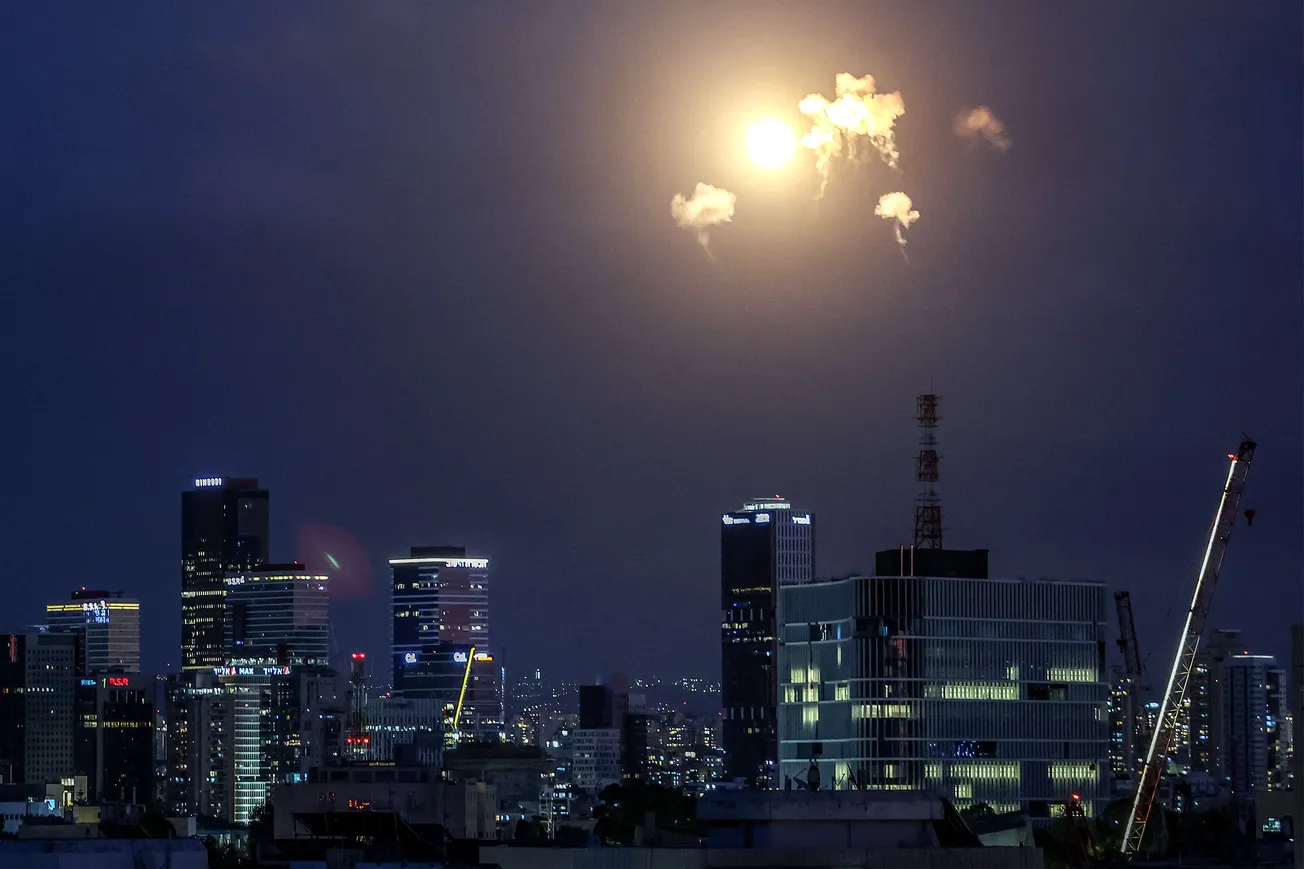On the world stage, perceptions matter. Elections, especially those of the world powers, garner much focus and invite scrutiny, for it is not just the country's fate that hangs in the balance. Leaders of the first world influence and alter geopolitical relations that affect people far beyond their borders.
Much hype and frenzy surrounds the upcoming November 2024 presidential elections in America. The fact that it would most likely be a rematch between President Biden and former President Trump has even the less politically inclined folks tuning in from around the world.
Meanwhile, Russian President Vladimir Putin claimed a "landslide victory" in the country's presidential elections earlier this month. Having "won" his fifth term, President Putin is mandated to rule Russia until 2030. Putin himself extended the Russian President's four-year term to six years in 2008 and changed the country's constitution to abolish presidential term limits.
In the just concluded elections, though there were four candidates on the ballot, the Russian autocrat is said to have won 87.3% of the votes on a record turnout of 77.5%. Those numbers are not surprising considering that the Levada Center, a Russian nongovernmental polling and sociological research organization, claimed that the former KGB officer enjoys an approval rating of 80% in the country. But, President Putin does not encourage free speech nor tolerate dissent. Hence, it is not beyond doubt whether Russians express their honest and sincere opinions about the autocrat.
One of the Russian President's staunchest critics, ambitious political rival, and anti-corruption crusader, Alexey Navalny, died in an Arctic penal colony just a month before the country went to polls. A vast majority allege that President Putin and the Kremlin are involved in his untimely passing, though the charges have been vehemently denied. Most of President Putin's other opponents are either in exile, behind bars, or disqualified from participating in the elections.
But Moscow and the Kremlin want the tags of "legitimacy" and "people's choice" to show abroad and use the elections as a means to consolidate and confirm President Putin's iron grip on the country.
On the other hand, Chinese President Xi Jinping has postponed the 20th Central Committee's Third Plenum, which should have been held by the end of 2023. A meeting of great consequence, the Third Plenum is usually devoted to adopting national and party-wide reform agendas. It is seen as a course setting for the coming five years. Those familiar with Beijing's modus operandi opine that the indefinite postponing of such a crucial assembly points to a notable divide within the top brass of the CCP.
That the unexpected postponement comes after President Xi is said to have been 'scolded' by a faction of party seniors at the Beidaihe meeting in the summer of 2023 adds to the speculation. It was reported that respected veterans in the CCP wanted the President to provide adequate measures to tide the country over economic, social, and political troubles that had worsened since the pandemic.
China had been reeling under President Xi's zero-COVID policy and witnessed public protests. Beijing's efforts to regulate dominant sectors like real estate and the tech industry have worsened its economic conditions. It is theorized that the Plenum was put off as the CCP leadership failed to reach a consensus on key reforms and the course ahead. Besides, the sacking of the defense minister and "investigations" against top military commanders has shaken the government.
China is a one-party state, and the leaders are not elected directly by the people. Hence, President Xi does not have to face his citizens at the polling booths. However, the National People's Congress (NPC) that appointed him has the power to remove him from office, at least in theory. Like his Russian counterpart, President Xi has also altered China's constitution, which stipulated a two-term limit for the office of the President, and is now in his third term.
The two leaders must snuffle dissent and consolidate their positions to remain in power and pursue their autocratic, aggressive agendas. They must be perceived as strong and unchallenged. To be perceived as powerful is half the battle to hang on to power.
Related Infographics
